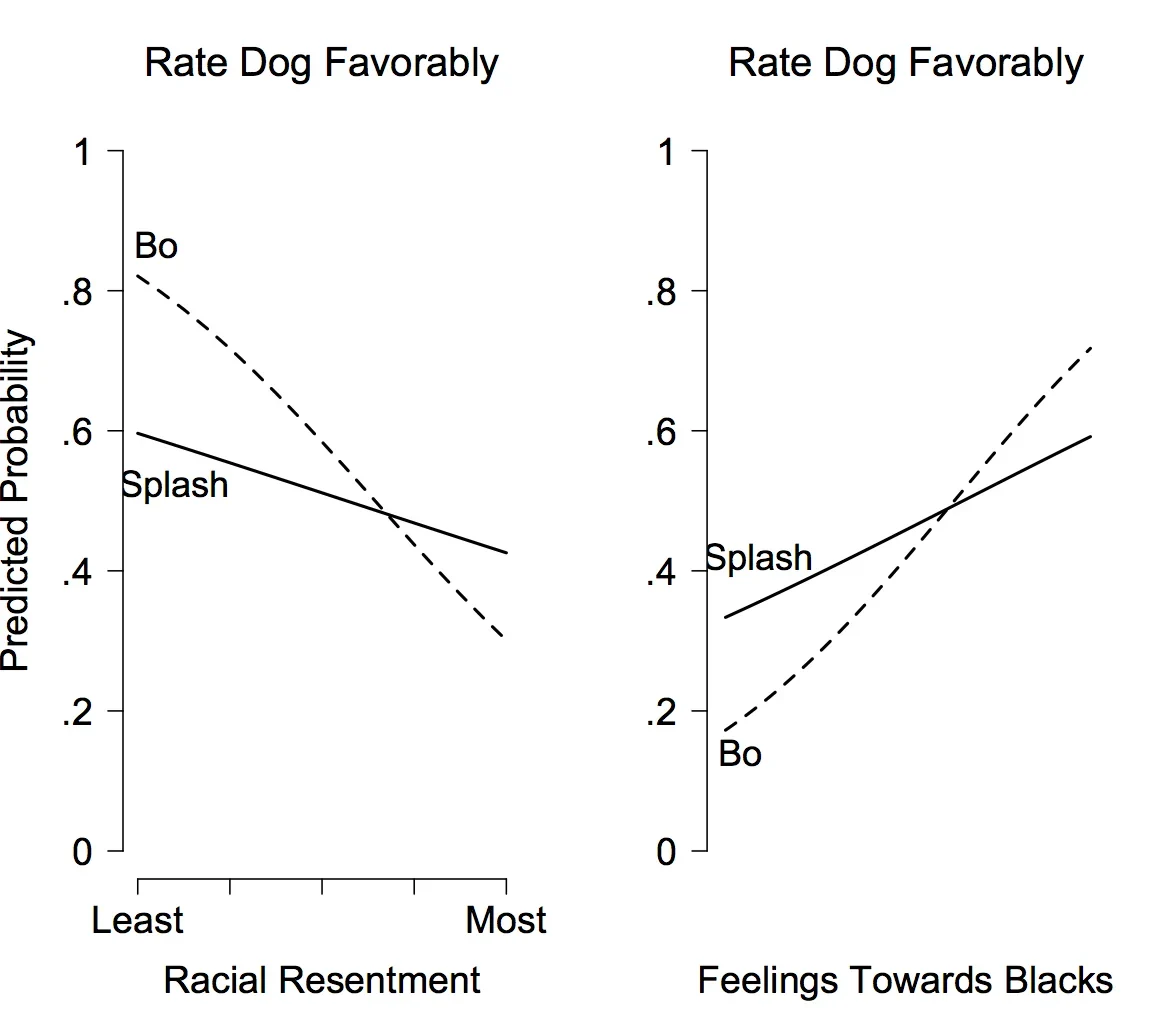As mentioned in a previous Model Politics post, racial attitudes remain a much stronger predictor of attitudes towards Barack Obama than previous presidential candidates. Perhaps even more interesting, a series of findings by social scientists indicate that presidential vote choice isn’t the only thing that has become increasingly polarized by racial attitudes since Barack Obama’s rise to prominence. Indeed, these studies show that racial attitudes’ influence on a number of political evaluations increased significantly after becoming connected to Obama’s presidency—evaluations that include health care opinions, tax policy preferences, approval of Supreme Court nominees, midterm vote choices, and even identification with the Democratic Party (see: 1, 2, 3, 4, 5). We have referred to this phenomenon as the spillover of racialization.
To see just how far this spillover of racialization extends, I surveyed 1000 YouGov respondents about something with no manifest political content whatsoever—feelings towards politicians’ dogs. Individuals were first shown a picture of the Clinton’s former Chocolate Labrador, Buddy, and then asked to rate how favorably they felt towards him. These same respondents were then shown the above picture of the Obamas’ Portuguese Water Dog, Bo, but with an important twist: Half of the sample was told that the picture was of Bo Obama, and the remaining half was told that it was a picture of Ted Kennedy’s dog, Splash—a design enabled by the fortuitous fact that Kennedy actually had a Portuguese Water Dog named Splash. The idea here is that any differences in evaluations of Bo Obama and Splash Kennedy should be caused by their respective owners rather than their pictures.
Much like prior spillover of racialization results, the figure below shows that respondents relied more heavily on their racial predispositions when evaluating Bo Obama than they did when rating the picture said to be Splash Kennedy. Indeed, the first panel of the display shows that moving from least to most racially resentful (see measurement: here) was associated with more than a 50 percentage point decrease in Bo’s favorability rating compared to less than a 20 point decrease in support for Splash. As can also be seen, the second panel of the display reveals a similar sized difference in the effect of feelings toward blacks, as rated on a 0-100 thermometer scale, on respondents’ respective evaluations of Bo Obama and Splash Kennedy.

(Note: Probabilities are based on logistic regression coefficients. Predicted probabilities were calculated by setting favorability ratings of Buddy Clinton, and thermometer rating of whites (second panel only) to their sample means. Source: YouGov Survey, March 31-April 2)
It is important to note, however, that these increased effects of racial attitudes were not accompanied by significant differences in overall assessments of Bo and Splash. Consistent with previous spillover of racialization findings, in fact, experimentally connecting an object of evaluation like Bo the Dog to Barack Obama simultaneously increased support among racial liberals and decreased support among racial conservatives. The upshot, then, is polarization by racial attitudes, not diminished support for either Bo Obama or other attitude objects associated with the President.
These results reaffirm the Obama presidency’s unique potential to polarize public opinion by racial attitudes and suggest that this potential extends to opinions about issues as apolitical as Portuguese Water Dogs.









